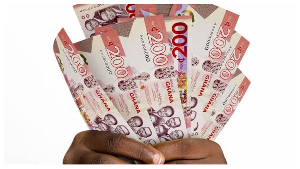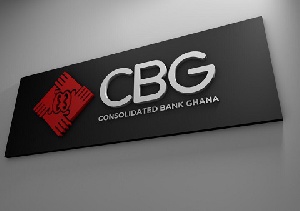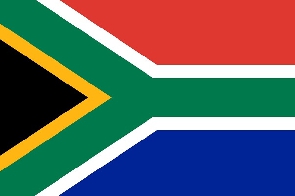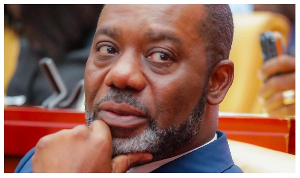- Home - News
- TWI News | TV
- Polls
- Cartoons
- Year In Review
- News Archive
- Crime & Punishment
- Politics
- Regional
- Editorial
- Health
- Ghanaians Abroad
- Tabloid
- Africa
- Religion
- Election 2020
- Coronavirus
- News Videos | TV
- Photo Archives
- News Headlines
- Press Release
- News Blogs
Business News of Tuesday, 10 September 2024
Source: www.ghanaweb.com
Cedi to USD Rate: What Ghana needs to do for the cedi to hit single-digits
GhanaWeb Feature by Mawuli Ahorlumegah
Ghana's local currency has suffered one of its worst percentages of depreciation against major trading currencies, such as the US Dollar, the Euro, and the British Pound in the last three years.
This development has not altered Ghana's economic growth trajectory but has left many businesses, corporations, individuals, households and even investors in limbo due to the consistent surge in depreciation, passing on the effect to consumers of goods and services.
At the end of 2016, the cedi was trading above GH¢4 to the US$1, which many deemed dire to the economy, with the opposition National Democratic Congress (NDC) somewhat suffering the consequences during a general election.
However, as of September 2024, the local currency is trading above GH¢16 to the US$1 on the retail market, raising further concerns over the current New Patriotic Party (NPP) government's ability to curtail the cedi's spiraling situation.
Recently, international news portal, Bloomberg, ranked the Ghana cedi as the fourth-worst performing currency among the top 150 currencies tracked globally.
A survey conducted by Bloomberg and published on June 10, 2024 showed that the cedi lost over 20% of its value against the US dollar.
Despite experiencing some relative stability against major trading currencies in July this year, the cedi's value continues to decline, leaving many people and businesses in more peril.
While the cedi's performance has been attributed to increased demand for the US dollar to purchase petroleum products, pharmaceuticals, and other imported goods, many continue to wonder if the cedi will ever return to single-digit status.
GhanaWeb Business takes a look at the prospect of the Ghanaian currency returning to single-digit rates (i.e., below 10 cedis to US$1).
While a return to single-digits is challenging, given the current economic conditions in the country, it is not impossible if the right blend of policies are implemented and sustained over time.
However, these interventions would require significant efforts, time, and consistent policy directions from both the government and the Bank of Ghana.
Here are some considerations to take below:
Economic Stability and Inflation Control: To significantly appreciate the cedi, Ghana must first stabilise its economy, reduce inflation, and effectively manage public debt. High inflation erodes the currency's value, making it difficult for the cedi to strengthen.
Fiscal Discipline and Debt Management: Effective management of the country’s public finances is key, as it will involve reducing the fiscal deficit and controlling debt levels which is crucial.
Additionally, the government demonstrating fiscal discipline can help boost investor confidence and support the cedi’s stabilisation.
Improvement in Trade Balance: A positive trade balance, with exports exceeding imports, can support the cedi’s stability. Increasing exports and reducing reliance on imports, especially for essential goods, would help strengthen the local currency against major trading currencies.
Foreign Exchange Reserves: Ghana must also increase its foreign exchange reserves through foreign direct investment (FDI), remittances, or other external sources that can provide a buffer and help stabilise the cedi.
Strong Monetary Policy: To ensure a strengthened local currency, the Bank of Ghana's monetary policy measures will play a critical role and impose confidence in the economy. The apex bank must adopt measures to tame inflation, adjust interest rates, and intervene in the forex market to influence the cedi's strength.
External Factors: Finally, global economic conditions, commodity prices (especially gold, cocoa, and oil), and interest rate policies in major economies can also impact the position of cedi as a favorable external environment would support the currency.
MA/AE
Watch the latest edition of BizTech below:
Ghana’s leading digital news platform, GhanaWeb, in conjunction with the Korle-Bu Teaching Hospital, is embarking on an aggressive campaign which is geared towards ensuring that parliament passes comprehensive legislation to guide organ harvesting, organ donation, and organ transplantation in the country.
Click here to follow the GhanaWeb Business WhatsApp channel
Entertainment










